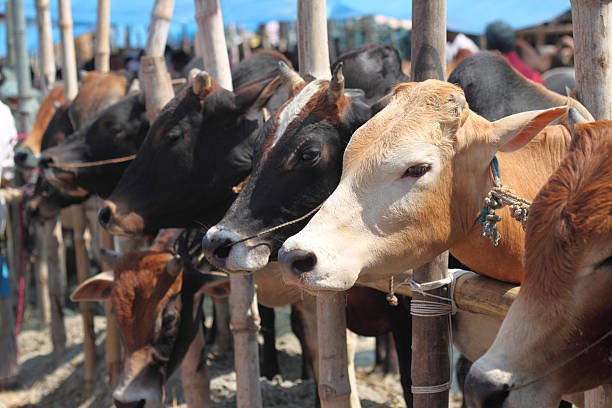Sunday, 8 February 2026

Rinderpest, historically known as “cattle plague,” was one of the most devastating livestock diseases before being officially eradicated in 2011. In a significant recognition, India’s ICAR-National Institute of High Security Animal Diseases (ICAR-NIHSAD) in Bhopal has been designated as a Category A Rinderpest Holding Facility—one of only six such centres globally—by the World Organisation for Animal Health (WOAH) and the Food and Agriculture Organization (FAO). This designation underscores India’s critical role in safeguarding global animal health by securely preserving rinderpest virus material for research and preparedness.
India has reached a significant milestone in global animal health and biosecurity with the designation of the ICAR–National Institute of High Security Animal Diseases (NIHSAD), Bhopal, as a Category A Rinderpest Holding Facility (RHF) by the World Organisation for Animal Health (WOAH) and the Food and Agriculture Organization (FAO) of the United Nations.
The recognition was formally announced during the 92nd General Session of the WOAH in Paris on May 29, 2025. Alka Upadhyaya, Secretary of the Department of Animal Husbandry and Dairying, accepted the certificate on India’s behalf from the Director General and President of WOAH.
Rinderpest—once known as “cattle plague”—was one of the most lethal livestock diseases in history, officially declared eradicated in 2011 after a global campaign. Though the disease no longer circulates in animals, the rinderpest virus is still stored in a small number of high-security laboratories around the world due to biosecurity concerns.
To prevent any accidental or deliberate reintroduction of the virus, FAO and WOAH have restricted its storage to select, rigorously vetted facilities. India nominated NIHSAD, a state-of-the-art Biosafety Level 3 (BSL-3) containment facility, as its official virus repository in 2012 and submitted a formal application for RHF status in 2019.
In March 2025, an international expert team appointed by FAO and WOAH conducted a comprehensive on-site inspection. Following their evaluation, NIHSAD has now been granted Category A status for one year—placing it among just six facilities worldwide with this designation. The approval underscores NIHSAD’s stringent biosafety measures, precise virus inventory systems, and readiness to respond to any biosecurity incident.
“This recognition is not just about containment; it is about responsibility and readiness,” said Secretary Upadhyaya. She highlighted India’s ongoing leadership in rinderpest eradication and containment, even after the disease’s elimination. The FAO-WOAH committee has also encouraged India to expand its role in maintaining vaccine seed materials, a step that could eventually support an upgrade to Category B RHF status, which includes capabilities for vaccine development and deployment.
This international recognition significantly enhances India’s global standing in the field of veterinary health and biosecurity, reaffirming its commitment to maintaining the highest standards in disease control and prevention.